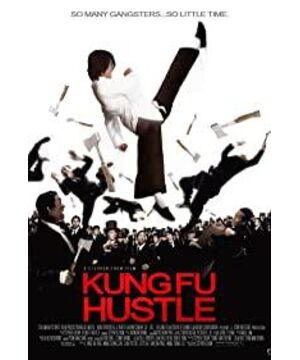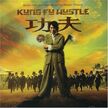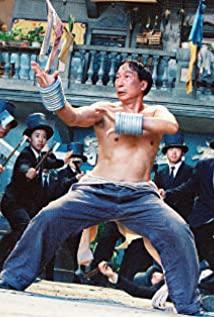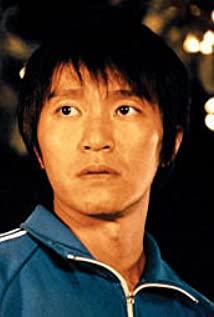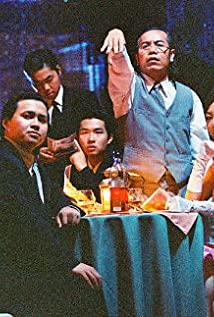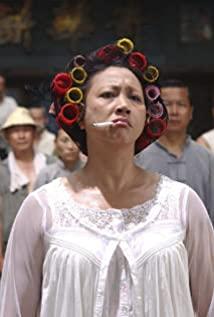1. Pig Cage Walled City vs "Seventy-two Tenants"
Living in the area of Guangdong and knowing Cantonese, people of a little age will definitely know what "Seventy-two Tenants" is. The prototype of the pig cage city in the film is the courtyard in "Seventy-two Tenants".
It is difficult for those who have not experienced that kind of cultural atmosphere to understand the ingenuity of Zhucongcheng Walled City. Its prototype, "Seventy-two Tenants" is actually a comedy story about how a poor public fights wits and bravery with the chartered public and chartered wife (representing the upper-level forces). In fact, the pig cage city in "Kung Fu" basically inherited this concept.
Although this film has some extensions, for example, the setting of the chartered wife and chartered public is actually a good person subverts "Seven", but I can see the kind of strong feelings that only small citizens can understand well. It's really hard to express in words here. It is estimated that, except for Zhou Xingchi, a caring person, it is difficult to reproduce the petty bourgeoisie of "Seven".
2. Tathagata's Palm vs "Tathagata's Palm"
Cantonese remnant (long) film, what a boring name this is. I remember when I was a child, I was most afraid of seeing Cantonese fragments. A few hours of broadcast volume, boring tricks, neurotic dialogue, and props that can't be more fake... Actually, Zhou Xingchi also used it to "mood". When I looked back, I realized that the things I didn't like or even hated when I was a child were actually the most loaded with the feelings of my youth.
"The Palm of the Tathagata", the Evil God of Fire Cloud... These were originally just terms that were used to play and joke when they were young, but Zhou arranged them in the movie with ulterior motives, and gave them new meanings. The Tathagata's Palm is not only the palm method with nine strokes that is powerful enough to defy the sky, but also represents the Buddhadharma and awakening; the Huoyun Evil God is not only the character of the same name, but the shadow, the darkness that cannot be challenged. This is not carried in the original work, and Zhou Xingchi borrowed the theme to play.
I still remember when I was a kid I used to play with my friends, hit me with a palm and shout, "Look at the ninth style of my Tathagata's palm!" Then he laughed. It's such a familiar word, but when he appears in the current movie, it doesn't have the playful feeling at the time. but a deeper emotion.
How can I say this feeling, it is very similar to seeing Optimus Prime deforming on the big screen. A feeling of "living" something that was accustomed to when I was a child.
3. Stephen Chow vs Bruce Lee
As we all know, the one who has the deepest influence on Stephen Chow is Bruce Lee. He said that anything can be funny, but Bruce Lee can't.
Yes, "Kung Fu" is a film that pays tribute to Bruce Lee.
The most intuitive one is the set of shots in which Axing picks dozens of axe gangs. Actions and moves are designed to pay tribute to Bruce Lee. However, Zhou Xingchi not only paid tribute to idols, but also added his own unique elements - remember what Fire Cloud Cthulhu said in it? "Step on the toes... that's what children fight like!"
What a trick to "step on the toes"! This naive move makes people laugh, but it is the one that best represents Zhou Xingchi!
Zhou Xingchi has been chasing Bruce Lee's back. Now when he's even ahead of Bruce Lee in a way, he turns his head and looks at his idol Bruce Lee, grimacing and imitating his idol's actions. From now on, Zhou Xingchi is no longer the little brother chasing after idols, he has grown up - but his unique character has not disappeared.
In this film, Zhou Xingchi not only paid tribute to the idol Bruce Lee, but also paid tribute to the wave of kung fu films set off by Bruce Lee. The action design of this film is the hardest among his films. In some martial arts scenes, you may even have the illusion of "Did "Kung Fu" affect "Ip Man" in 2008?". Although the final duel is a bit tricky, in general, the film's straight-forward fight is a tribute to the old kung fu film, let alone finding so many actors from the old kung fu film era.
Some people will think that this film says that it is funny but not funny, and that it is fighting but not fighting, which makes people doubt Zhou Xingchi's level of handling. In fact, most of the people who say this have never experienced the era of old Hong Kong kung fu movies. I don't believe that you can go to see the early kung fu movies, most of which are accompanied by laughter. That's right, old Hong Kong kung fu movies are a comedy in and of itself, and then the fighting. Zhou Xingchi has his own style in the way of jokes and rhythm in this film, but as far as I can see, he is very faithful to the way of those kung fu films. Without this cultural foundation, and without the atmosphere and habit of being immersed in it, it is impossible to understand Stephen Chow's intentions.
In fact, these are all well-known things, and words are still words, and they will only be nailed to the carrier. But that kind of breath behind it is not something that just anyone can see. I've watched "Kung Fu" twice, and both times it gave me a vaguely familiar feeling, a feeling like returning to the slapstick when I was young. A little hazy, and a little funny.
If I really wanted a metaphor, I said it in the article - it's the same as seeing Optimus Prime deforming on the big screen. However, this time, the target is not the post-80s, but a group of ordinary citizens in the Cantonese cultural circle.
View more about Kung Fu Hustle reviews


